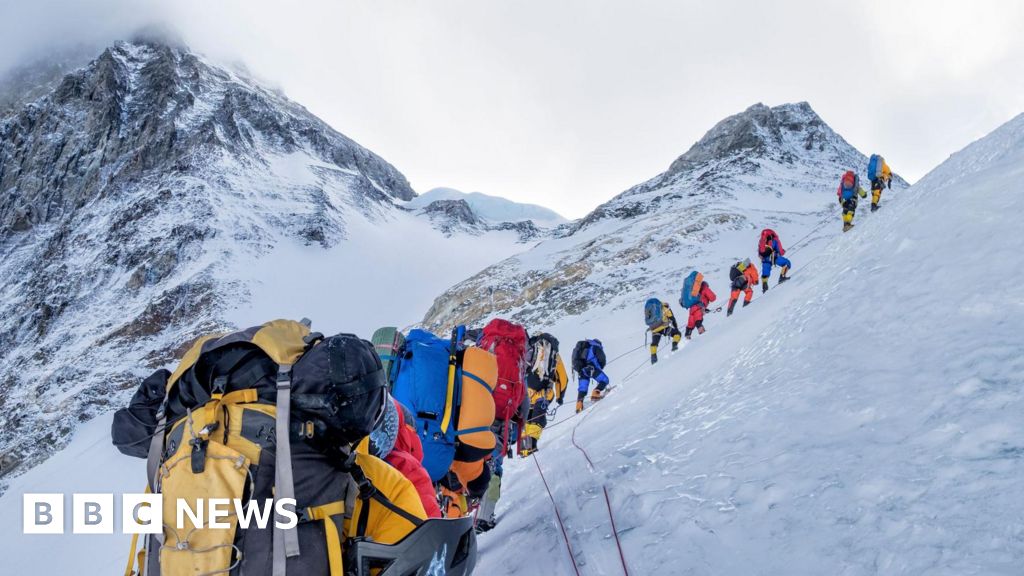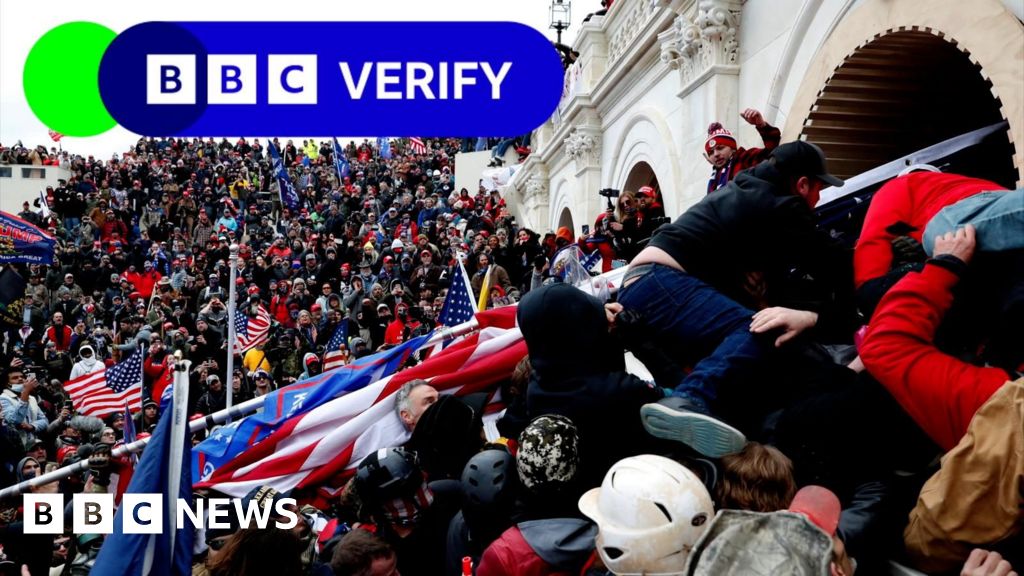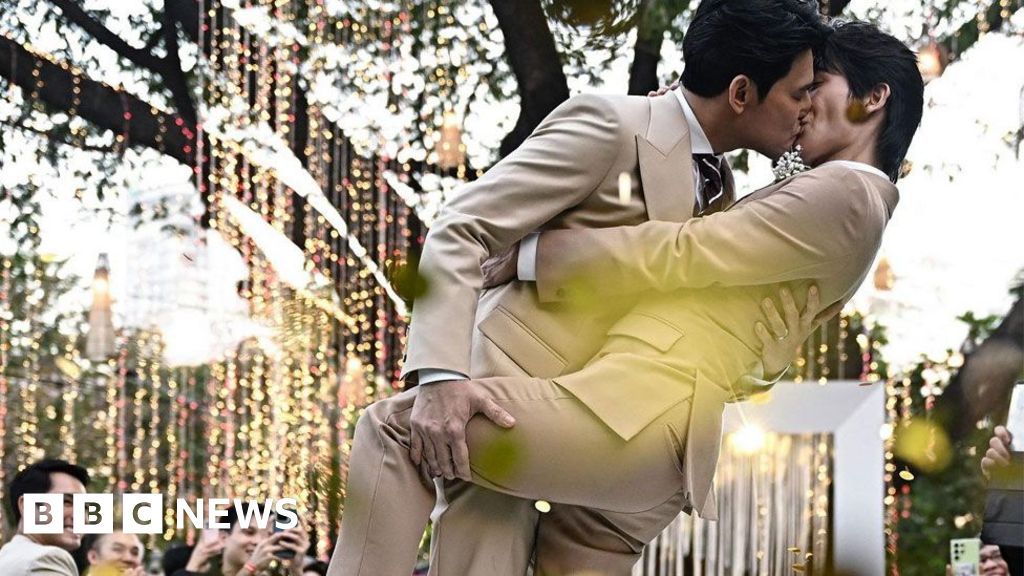ARTICLE AD BOX
Watch: What Navalny wanted to happen in the event of his death
"If you are killed, if this does happen, what message do you leave behind to the Russian people?"
This is the first question posed to Alexei Navalny by Canadian director Daniel Roher in the 2022 Oscar-winning documentary Navalny.
"Come on Daniel, no," Navalny responds, smiling.
"No way. It's like you're making a movie for the case of my death."
Those words have now taken on a new poignancy with the news that the 47-year-old Russian political activist died in an Arctic Circle jail on Friday.
Russian prison authorities said that the Kremlin critic had become unwell following a walk. Navalny's team says his body is purposely being withheld by the Russian authorities so they can "cover traces".
Despite the clear dangers Navalny was facing back in Russia, Mr Roher told the BBC he was still in complete shock when he heard the news of his friend's death.
"In this moment we're occupying now - this cloud of sadness and grief which I'm struck by - it's shocking to me," Mr Roher told the BBC.
"I was shocked when I heard the news, in spite of the fact that anyone who watches the film should not be shocked, it should not be such of a surprise."
Mr Roher described how his friendship with Navalny developed during the film project.
"I think our mutual respect for one another was predicated on a shared sense of humour - he's a very funny man, he likes to laugh. Within about 10 seconds of meeting he was making fun of me and cracking jokes at my expense, which is my love language, so I was giving it right back," Mr Roher said.
The film follows Navalny as he and his team unravel a plot to poison him with deadly nerve agent Novichok.
In August 2020, he had collapsed on a flight over Siberia and was rushed to hospital in Omsk - an emergency landing that saved his life. Russian officials eventually allowed him to be airlifted to Berlin for treatment.
The German government revealed that tests carried out by the military found "unequivocal proof of a chemical nerve warfare agent of the Novichok group".
The Kremlin denied any involvement and rejected the Novichok finding. Many were sceptical, including Navalny himself, who embarked on his own investigation with a team of journalists.
Image source, CNN Films
Image caption,Daniel Roher, left, with Navalny and his wife Yulia, on the film set
In one extraordinary scene in the film, Navalny dupes an FSB agent into admitting over the phone that the chemical weapon had been doused on Navalny's underwear at a hotel in Tomsk.
The agent, Konstantin Kudryavtsev, said that had the plane not made an emergency landing, Navalny would have died. The fate of the agent is not known.
"We were all completely stunned," said Shane Boris, a producer on the film.
"When the team started that interview I don't think anyone expected the calls to yield any sort of result like that."
The film follows Navalny has he recovers from the poisoning and spends time with his family. It documents his return to Russia, where he is arrested on arrival.
He would never walk free again.
Mr Roher says he and Navalny became close during the two months of filming, but the subject matter meant it was not all plain sailing.
"There were moments that were quite tense, where I had to ask him uncomfortable things. Even the first question in the movie … that's a very uncomfortable line of questioning, but I'm there first and foremost to make a movie," he said.
Mr Roher said he and Navalny exchanged letters after he was imprisoned upon returning to Russia.
"I'm very pleased to have them to this day. I put them in my office and I'll cherish those forever," he said.
Image source, Getty Images
Image caption,Daniel Roher and Yulia Navalnaya embrace at the 2023 Oscars
The prospect of Navalny's mortality is a thread that runs throughout the film.
In one scene, between interviews, one of Navalny's team asks him if he's getting irritated by questions about his past.
Navalny says he is not, but adds: "It's just that I realise that he's filming it all for the movie he's going to release if I get whacked."
In reality, the film was released before his death and won widespread international acclaim. The Guardian said it was "one of the most jaw-dropping things you'll ever witness", while the Times called it "undoubtedly one of the most thrilling documentaries to be released this, or any, year".
Many are now watching the film in a new light.
"Alexei, if you are arrested and thrown in prison, or the unthinkable happens and you are killed, what message do you leave behind for the Russian people?" Mr Roher asks in the final scene.
Navalny briefly responds in English, before the director suggests he revert to his native tongue.
He finishes in Russian: "We don't realise how strong we actually are. The only thing necessary for the triumph of evil is for good people to do nothing.
"So don't be inactive," he says, before giving a knowing look to the camera.
Image source, CNN Films
Image caption,Roher says the film changed his life
Mr Roher says that making the film has changed his life.
"It had such a profound impact on me as a human being," he said.
"When I think about his life, it will remind me that no matter what situation life throws at you ... if you have levity and you do not lose your humanity - keep laughing, keep writing your wife's Valentines Day messages - everything will be better.
"Everything isn't going to be okay for Alexei as we know, but his life is a masterclass in courage and resilience, and light in dark."

 11 months ago
165
11 months ago
165








 English (US) ·
English (US) ·